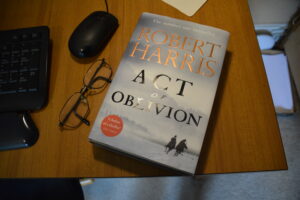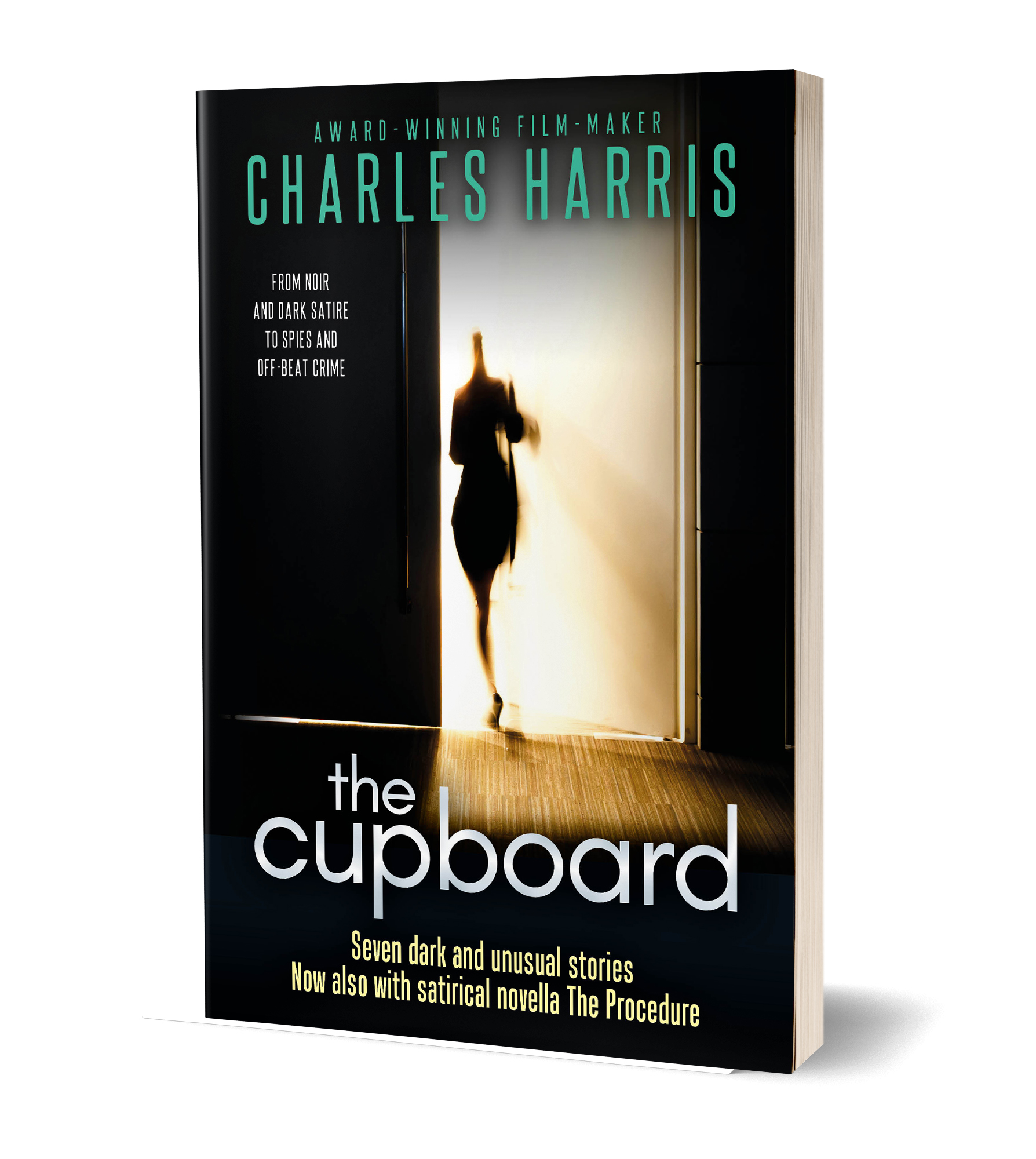Act of Oblivion – Robert Harris
25 Thursday May 2023
Written by Charles Harris in Books, Historical, Politics, Reviews, The Library Corner, Thriller
Tags
ACT OF OBLIVION

Why should we care? It’s probably the most important question a storyteller needs to answer.
It’s particularly pressing when the story relates to events that took place around three hundred and fifty years ago, to people of whom we are unlikely to have heard.
Robert Harris (no relation) has an impressive CV. His historical thrillers stretch from Imperial Rome (Pompeii and Imperium) to 800 years in the future (Second Sleep).
A successful journalist, his best-selling debut novel, Fatherland imagined a counter-factual world where the Nazis won the Second World War. More recently, The Ghost was a thinly-veiled take-down of Tony Blair, through the eyes of a ghost-writer. Harris and Blair were friends until the Iraq War.
His new novel, Act of Oblivion represents his first foray into the politics of the seventeenth century. Which might seem surprising. Harris thrives on times of ideological conflict and moral challenge, and the English Civil War provides that in spades.
I would hardly be the first person to point out the dramatic parallels with our own age. Polarised religious sects. Fierce political debates spilling over into violence. A sense that anything was possible, for good or bad.
Anything recognisable there?
Act of Oblivion
The year is 1660. Two men flee Britain for their lives. Edward Whalley and his son-in-law William Goffe were among those who signed Charles I’s death warrant and now Charles II wants revenge.
In parallel strands, we follow Whalley and Goffe as they criss-cross New England, trying desperately to remain hidden, and their dedicated pursuer Richard Naylor.
The novel takes its name from the The Indemnity and Oblivion Act 1660, which honoured the regime’s promise not to inflict reprisals – except for those involved in the death of the king.
I was reminded of the TV series and film The Fugitive. Naylor is a scary and unremitting antagonist. Prepared to go to any lengths and yet always believable. And as with all good antagonists, we can see exactly why he is so driven in his turn.
It’s a tribute to Harris’s skill and research that Naylor is virtually the only invented character – he tells us this at the very start – and yet he rings as true as the others.
And while the author has invented him, he has done this with good reason. As Harris says, if there was a pursuit, there must have been a pursuer. It’s just that no records of who he was have survived.
Vulnerabilities
A third strand brings flashbacks to the war and the republic that followed. Whalley narrates this in a journal he writes for his wife, who he left behind in London when he fled and fears will never see again.
His journal allows us to see into his uncertainties and vulnerabilities, sides of his character which are crucial to ensuring that we stay engaged.
Whalley and Goffe could also have been difficult characters to care about. They are/were committed Puritans with an extreme view of religion that would put many modern fundamentalists to shame. Indeed, one of the fascinating parallels with our century is that all three are convinced that God’s ends justify any means.
Whalley was Oliver Cromwell’s cousin and close to the heart of the Commonwealth. Goffe is if anything more fanatical and Whalley’s increased doubts in the face of his son-in-law’s entrenched beliefs form one of the many fascinating subplots. But both were Colonels in the Roundhead Army and both had blood on their hands.
That we do care is in part down to the extreme danger they face, and much due to Harris’s skill.
Truth or legend?
If any of this makes the book sound heavy, this is very far from the case. At no point does Harris’s research ever get in the way of the storytelling.
The publishers have provided a list of personae and a map of New England, but I rarely needed either. I found it fascinating to join a journey through famous towns and cities as they must have been in their very early years. From a nascent Boston to the future New York and many townships in between.
Harris has dealt with religion and religious conflict before. Successfully in Conclave, where the election of a new pope becomes a political nailbiter. Less so in The Second Sleep, which I felt never quite worked out how to bring its ideas together in a coherent whole.
Here, he is back on form. The religious issues fit perfectly with the plot. He doesn’t shoehorn them in, or stretch for meaningful parallels, but allows us to judge for ourselves.
To misquote Larry McMurtry misquoting a John Ford movie: “If you have to choose between history and legend, print the legend.” Harris does the opposite. He not only takes enormous care in his research, even adding new facts that he discovered in the process.
He also ties up the loose ends in his acknowledgements at the end. And adds an admirably full list of sources for the interested reader to dig deeper into the historical characters and their background.
Episodic but gripping
However, true stories rarely provide the writer with a neat structure, and here I feel the middle sags a bit.
It feels churlish to say this. It’s not a big thing, but I suspect it comes from Harris’s strict adherence to the facts as we know them. He is careful not to invent anything that could not be deduced, but that leaves him with an episodic story.
And the secondary characters rarely feel more than one-dimensional bit-players.
But these are small cavils in a chase story that generally grips from start to finish. And yes, I did care.
Read more
Act of Oblivion by Robert Harris
Act of Oblivion by Robert Harris – paperback out 8 June 2023
The mystery of the misquoted quote from “The Man Who Shot Liberty Valance”


Tell people what you think